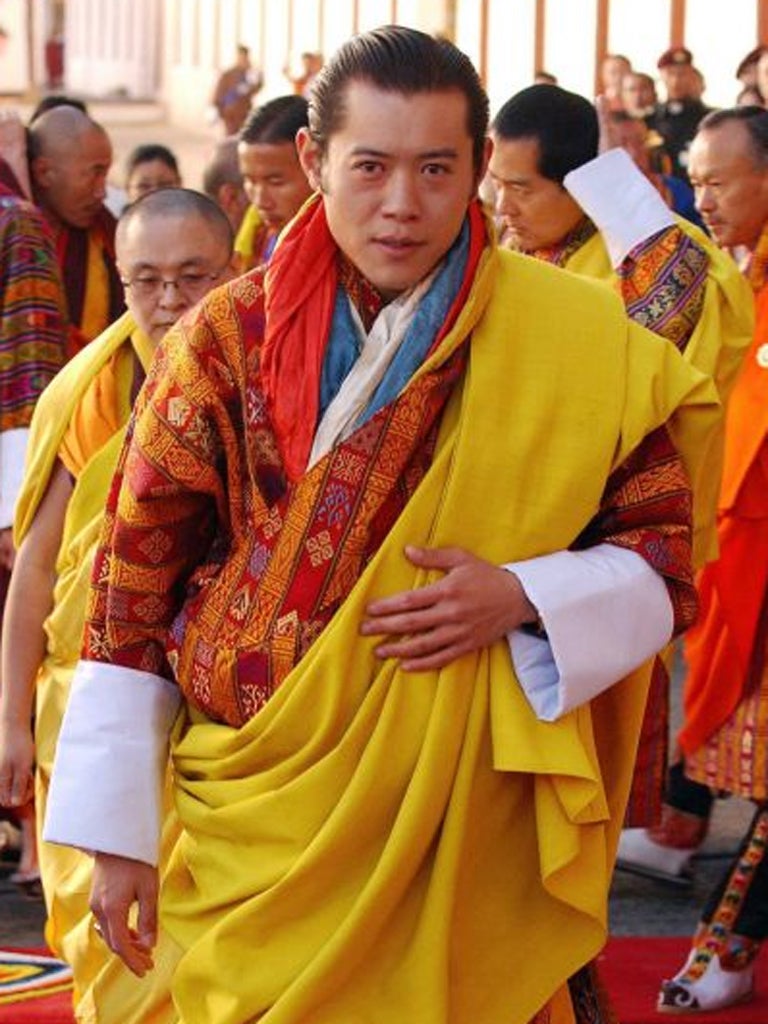Smokers hope Bhutan's young king will give them a break

Your support helps us to tell the story
From reproductive rights to climate change to Big Tech, The Independent is on the ground when the story is developing. Whether it's investigating the financials of Elon Musk's pro-Trump PAC or producing our latest documentary, 'The A Word', which shines a light on the American women fighting for reproductive rights, we know how important it is to parse out the facts from the messaging.
At such a critical moment in US history, we need reporters on the ground. Your donation allows us to keep sending journalists to speak to both sides of the story.
The Independent is trusted by Americans across the entire political spectrum. And unlike many other quality news outlets, we choose not to lock Americans out of our reporting and analysis with paywalls. We believe quality journalism should be available to everyone, paid for by those who can afford it.
Your support makes all the difference.Activists in Bhutan are hoping their young king – a man known for his fondness for the occasional cigarette – will enter a controversy that has gripped the country and use royal powers to free a number of people sent to jail after being convicted under tough anti-smoking legislation.
Earlier this year, the authorities in the Himalayan kingdom famed for both its natural beauty and its adoption of the principle of gross national happiness (GNH), found themselves in the middle of a row after a Buddhist monk was jailed for three years after being convicted of failing to pay duty on £2 worth of chewing tobacco. 23-year-old Sonam Tshering, who was carrying sachets of the tobacco in his pocket, was jailed even though he said he was unaware of the anti-smuggling law.
Since then, dozens more have been arrested and up to ten people imprisoned, triggering a campaign against the law that has forced the government to reconsider. Yet, even if the legislation is changed it is unclear what will happen to those people already behind bars
Campaigners say a pardon from King Jigme Khesar Namgyel Wangchuck, who was crowned in 2008, is their only hope. “We are hopeful that he will [give a pardon]", said Kinley Tshering, one of the campaigners.
The battle over the 2010 Tobacco Control Act represents one of the most obvious growing pains of Bhutan’s tender democracy. Until 2008, when it held its first parliamentary elections, the country of 700,000 people was an absolute monarchy, ruled by a succession of kings. Three years on, there is little evidence that the king’s influence over the country has diminished, and his image smiles out from posters and billboards everywhere. At the same time, it is the government now making policy.
When the government last year decided to tighten tobacco legislation – the sale of tobacco had been banned in 2005 – the move was presented as fitting with the principles of GNH, which says that things such as health, education and psychological well-being are as important as a strong economy. But the recently-minted politicians of Bhutan have learned that the harsh sentences attached to the law, have created more grief than happiness.
“Where is GNH when you are jailing an 80-year-old man,” asked Mr Tshering, whose Facebook page dedicated to introducing a more proportional sentence has attracted 2,600 followers. “Where is GNH when you have the bread-winner of the family in jail?”
Taken back by the unprecedented public outcry, which has found a voice both online and in the country’s growing media, the government, headed by prime minister Jigme Thinley, has announced its intention to introduce an amendment in the next session of parliament. A spokeswoman for the prime minister said it would be “premature” to say what changes would be made, but a statement about the law released to the local media in the autumn indicated the prime minister was aware of the “pain and the suffering that it has caused”.
Mr Thinley, who himself is a member of the Facebook page, also suggested that any amendment he proposed might not get passed by the parliament. “Though some of us have liberal views, the larger section of Bhutanese tend to be rather conservative,” his statement added.
Campaigners and observers of Bhutanese society are unsure whether any changes would be retroactive and therefore result in the release of the ten or so individuals reportedly serving terms between three to five years. If – like Sonam Tshering, the monk who was jailed earlier this year – their appeal to the higher court also fails, the only source of relief is the 31-year-old king. He alone has the power to give a pardon or commute a sentence.
A senior aide to the Oxford-educated King Wangchuck, who was recently married amid traditional splendour and pageantry in the former capital city of Punakha, confirmed that the monarch was a regular smoker, though he could not say how many cigarettes he consumed. He said that any request for a pardon would have to first go to advisory board which would make a recommendation. He said: “We would have to wait and see.”
Join our commenting forum
Join thought-provoking conversations, follow other Independent readers and see their replies
Comments